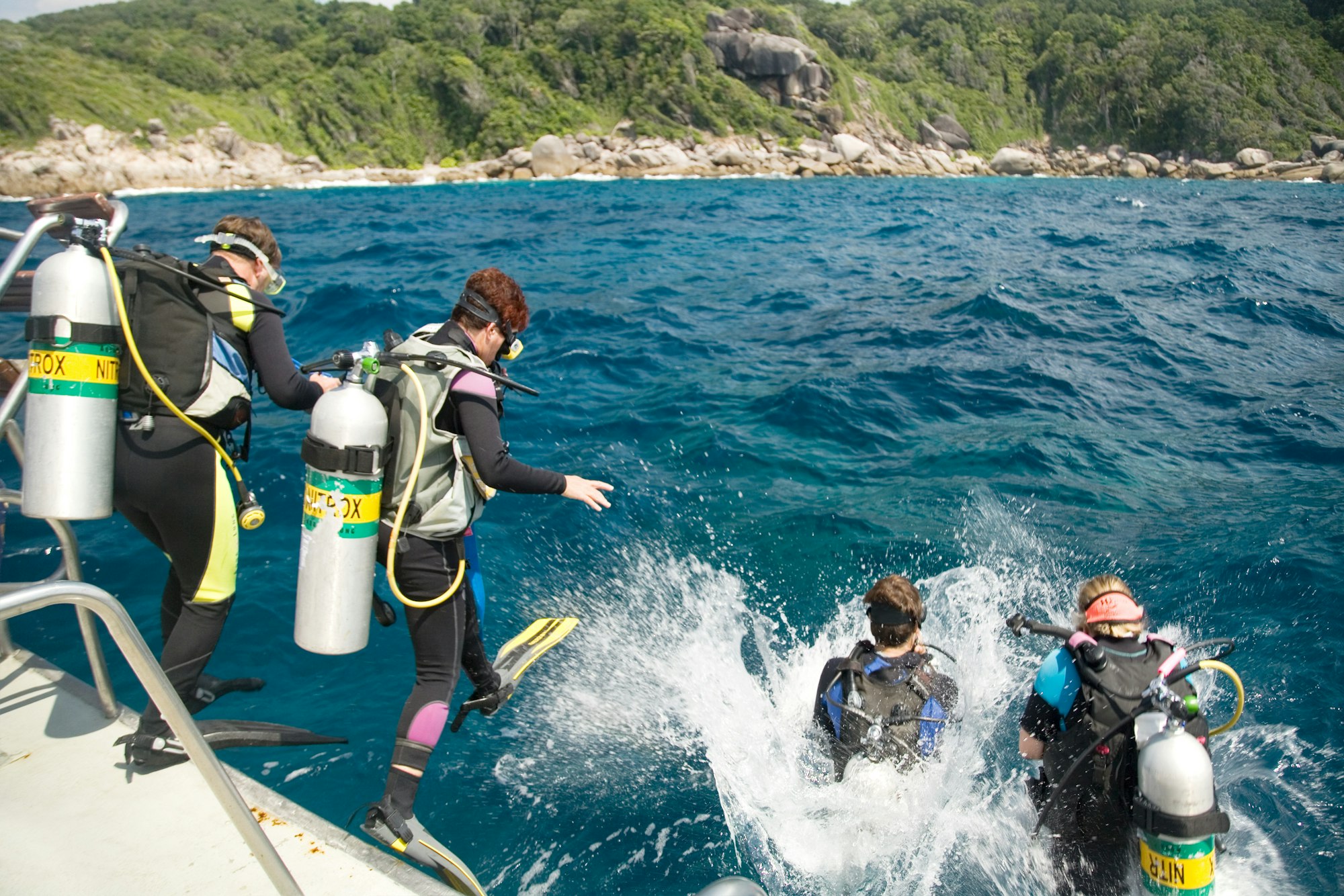
Diving is an aquatic sport in which divers use a single breath to descend hundreds of feet into cold and dark water on one breath, then perform complex gymnastic moves in tight quarters that require intense concentration and precise control. Diving may be considered high-risk, yet its rewards for those who can master it are immense: full body workout, strength building and stamina building as well as burning calories but most importantly it fosters personal development while creating real joy!
Modern diving is an intensely competitive sport in which participants dive from springboards or platforms and compete in one of six “groups”, such as Forward, Back, Inward, Reverse, Twist or Armstand. Each “group” varies in terms of difficulty and is worth points on an official DD sheet; more difficult dives may result in injury due to lung compression under high pressure causing blood flow into smaller alveoli spaces; otherwise they could develop nitrogen narcosis which causes sedative effects upon returning quickly enough!
Although diving can be a risky sport, most injuries sustained while participating are relatively minor and preventable. Most diving accidents and incidents are due to diver error; thus checklist use has been linked with lower mishap rates as well as helping prevent repetitive stress disorders like tendonitis and carpal tunnel syndrome from developing.
DPC regulates elite diving competition in Canada, and most provincial level competitions follow its rules. While provincial seasons run from February to July, athletes often compete year round in order to improve their standings and qualify for higher level events; many divers qualify for national championships by performing well at earlier competitions in their season.
There is a common misunderstanding that absolute scores are the defining factor in winning serious dive meets, when in reality it’s more about relative scoring that ultimately decides who prevails at any particular competition. Thus it is vital that competitors ensure their judges provide accurate and consistent scoring of each dive at their meet.
Diving is an extremely dynamic sport, making it increasingly challenging to perform without proper warming up. A comprehensive warm up is vital in order to avoid injuries and mistakes; an effective warm up should include cardiovascular exercise to get the heart rate going as well as drills designed to build upper and lower body muscle, core muscles and stretchability exercises for joint protection before stretching and flexibility exercises are done prior to rigorous workouts – generally, an ideal warm up will last 20-30 minutes and include: